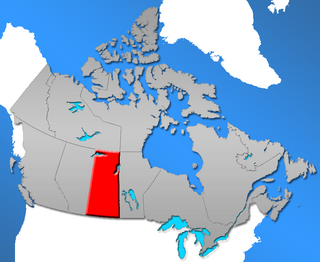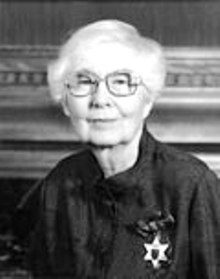Related Research Articles

The University of Regina is a public research university located in Regina, Saskatchewan, Canada. Founded in 1911 as a private denominational high school of the Methodist Church of Canada, it began an association with the University of Saskatchewan as a junior college in 1925, and was disaffiliated by the Church and fully ceded to the University in 1934; in 1961 it attained degree-granting status as the Regina Campus of the University of Saskatchewan. It became an autonomous university in 1974. The University of Regina has an enrolment of over 15,000 full and part-time students. The university's student newspaper, The Carillon, is a member of CUP.

Saskatchewan Polytechnic is Saskatchewan's primary public institution for post-secondary technical education and skills training, recognized nationally and internationally for its expertise and innovation. Through program and course registrations, Saskatchewan Polytechnic serves 26,000 distinct students with programs that touch every sector of the economy. It operates campuses in Moose Jaw, Prince Albert, Regina and Saskatoon; and provides a number of courses and programs through distance education.

The Métis are Indigenous peoples in the three Prairie Provinces, as well as parts of Ontario, British Columbia, the Northwest Territories, Atlantic Canada, and the Northern United States. They have a shared history and culture and are of mixed Indigenous and European ancestry which became a distinct group through ethnogenesis by the mid-18th century, during the fur trade era.
The Gabriel Dumont Institute (GDI), formally the Gabriel Dumont Institute of Native Studies and Applied Research Inc., is a non-profit corporation serving the educational and cultural needs of the Saskatchewan Métis and Non-Status Indian community, and is the officially-designated education arm of the Métis Nation—Saskatchewan (MN-S).

The First Nations University of Canada is a post-secondary institution and federated college of the University of Regina, based in the Canadian province of Saskatchewan. FNUniv operates three campuses within the province, in Prince Albert, Regina, and Saskatoon. The university offers academic programs in business, the humanities, social sciences, and sciences; including a number of programs focused around aboriginal practices.
The Métis Nation—Saskatchewan is a federally-recognized organization that represents the approximately 80,000 Métis people in the province of Saskatchewan, Canada. It is affiliated with the Métis National Council. Glen McCallum was elected as president in 2017 and reelected in 2021.
Gary Merasty, by his mother Theresa and his many aunts. Gary now lives with his family of six in Saskatchewan which includes his wife and kids. Gary is a Canadian politician and former Liberal Member of Parliament for Desnethé—Missinippi—Churchill River in northern Saskatchewan. A former two-time Grand Chief of the Prince Albert Grand Council, Merasty is a member of the Peter Ballantyne Cree Nation within Treaty 6 territory. He is the first Status First Nations person to be elected in Saskatchewan.
Walter Perry Deiter was a Canadian First Nations leader. He was the founding chief of the National Indian Brotherhood in 1968, which is today known as the Assembly of First Nations.

Politics of Saskatchewan relate to the Canadian federal political system, along with the other Canadian provinces. Saskatchewan has a lieutenant-governor, who is the representative of the Crown in right of Saskatchewan; premier, Scott Moe, leading the Cabinet; and a unicameral legislature.
Culture of Saskatchewan views the patterns of human activity in the central prairie province of Canada examining the way people live in the geography, climate, and social context of Saskatchewan.
Myron Kowalsky is a retired Canadian politician, teacher, and former Speaker of the Legislative Assembly of Saskatchewan.
The Federation of Sovereign Indigenous Nations (FSIN), formerly known as the Federation of Saskatchewan Indian Nations, is a Saskatchewan-based First Nations organization. It represents 74 First Nations in Saskatchewan and is committed to honouring the spirit and intent of the Numbered Treaties, as well as the promotion, protection and implementation of these promises made over a century ago.

Historically, Saskatchewan's higher education system has been "significantly shaped" by demographics. In 1901, six years prior to the 1907 founding of a university in Saskatchewan, the urban population in Saskatchewan was 14,266 (16%) while the rural population was 77,013 (84%). One hundred years later, the proportions had changed significantly: urban population in 2001 was 629,036 (64%) while the rural population was 349,897 (36%). Over time the province's higher education system has changed significantly in response both to this demographic shift and to provincial politics.
Keith Napoleon Goulet is a Canadian former politician, who represented the constituency of Cumberland in the Legislative Assembly of Saskatchewan from 1986 to 2003. A Métis member of the Cumberland House Cree Nation, he was the first aboriginal person appointed to the Executive Council of Saskatchewan.
The 20th Legislative Assembly of Saskatchewan was elected in the Saskatchewan general election held in April 1982. The assembly sat from June 17, 1982, to September 19, 1986. The Progressive Conservative Party led by Grant Devine formed the government. The New Democratic Party (NDP) led by Allan Blakeney formed the official opposition.
Douglas Francis "Doug" McArthur is an educator and former political figure in Saskatchewan, Canada. He represented Regina Lakeview from 1978 to 1982 in the Legislative Assembly of Saskatchewan as a New Democratic Party (NDP) member.

Wynona Croft Mulcaster was a Canadian painter and teacher from Saskatchewan, best known for her prairie landscapes. She also played an important role in developing competitive riding in Saskatoon.

Reta Cowley was a Canadian painter. She is known for her watercolors of the prairie country around Saskatoon, Saskatchewan, which capture the unique qualities of space and light.
Edward Poitras is a Métis artist based in Saskatchewan. His work, mixed-media sculptures and installations, explores the themes of history, treaties, colonialism, and life both in urban spaces and nature.
Lisa Bird-Wilson is a Métis and nêhiyaw writer from Saskatchewan.
References
- 1 2 3 Normandin, Pierre G (1981). Canadian Parliamentary Guide.
- 1 2 "Cabinet and members of Saskatchewan's legislature". Leader-Post. Regina. Retrieved 2012-08-27.
- ↑ "Lane seeks foreign solution to involve natives In politics". Leader-Post. Regina. January 27, 1984. p. 7. Retrieved 2012-08-27.
- ↑ "Hammersmith sees voters sending Devine message". Phoenix. Saskatoon. February 16, 1983. p. 17. Retrieved 2012-08-27.
- 1 2 "Jerry Hammersmith". Banff Centre. Archived from the original on 2011-05-26. Retrieved 2012-08-27.
- ↑ ((cite web|url=https://panow.com/listing/dr-jerome-jerry-hammersmith/))